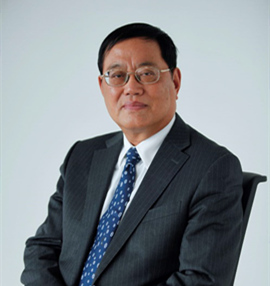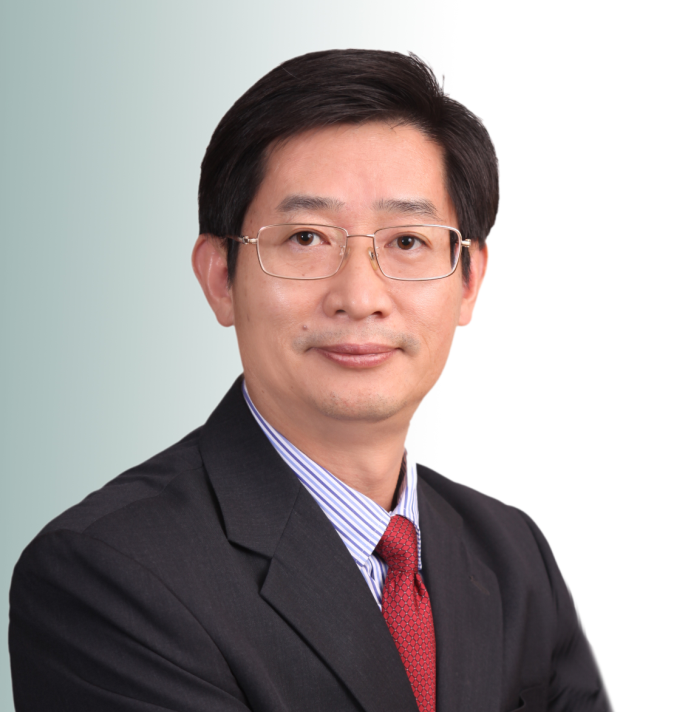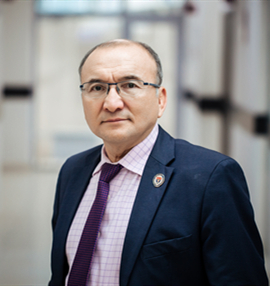Conference Overview
Kotler (2009) states that the most difficult challenges for leaders are turbulent environment and standing changes. Together with turbulence and change is closely connected with innovation and flexibility. And Hamel (2008) states that the changes in management style are not as quick as the changes in the environment.
Given the turbulence of the contemporary environment, it is necessary to adopt more flexible approaches to business leadership in circumstances of uncertainty than has traditionally been the case and involving new ways of learning and behaviors.
We are now living in a world facing unprecedented challenges, including polarization and separatism, climate change, and disruptive technologies. What are the qualities that our future business leaders must have? And what roles should business schools play in shaping such leaders for the turbulent world?
Leading in a
turbulent world
Parallel Session B1
Business Leaders leading in and through a crisis
Our world often witness crisis in different forms which occurs at a low probability but often results with heavy consequence, for instance, pandemic diseases, the increasingly-evident climate change and international political turbulence. It is an impressing task to prepare our business leaders to better cope with these crisis: not only manage their own organizations through these risks with minimum negative impacts, but more importantly contribute to improve our society's resilience to and capability of recovering from crisis. This theme aims to inspire our business education community to think over how to extend our efforts well beyond regular business teachings on topics such as operations management or accounting, and discuss what new elements should brought into our traditional curriculum. We trust that we could contribute to better manage the crisis as a community.
Parallel Session A2
Business Schools Partnership for a Turbulent World
Business education was always more internationally open than most sectors because of its immersion in knowledge of business, which never showed much respect for juridical boundaries. Business education partnership has now become central to the changes sweeping through the OECD and emerging nations, in which worldwide networking and exchange are reshaping social, economic and cultural life. Nowadays, the whole world is getting more unpredictable. It is imperative to understand how business schools’ partnerships across nations will be reshaped in this increasingly turbulent world.
Parallel Session A1
Preparing Business Leaders for a Turbulent World
The turbulence that our business leader are facing is increasing in both frequency and scale. Some are largely negative, for instance, global warming; while some are largely positive, for instance, the development of disruptive technologies. Both negative and positive turbulences not only pose challenges but also offer opportunities. What are the qualities and skills that our future business leaders must have, to better handle the risks and grasp the opportunities? And what roles should our business schools play in shaping such leaders for the turbulent world? This section focuses on how to seize opportunities from the turbulence and how to grow stronger in the turbulence.
Parallel Session A3
Transnational Business Education and Economic Globalization
Developing transnational education is one approach for higher education institutions wishing to develop and diversify their internationalization strategies and to help position themselves in new ways within a globalized environment. The recent two decades, increasing number of international universities provide business education in China jointly partnered with Chinese Universities, meanwhile, Chinese business schools have inaugurated their ventures by off-shore programs as well. The session will discuss how the delivery of transnational higher education pose a significant challenge to university leadership and governance, including questions of motivation, strategy, risk, funding and human resources, as well as important academic issues, such as the maintenance of standards across a range of locations and/or modes of delivery.
Parallel Session B2
Business School and Sustainability Education
It is our consensus that business school education should move from the old paradigm of profit maximization or cost minimization toward a more balanced mission -- the harmonized development of economy, environment and society. The last three decades have seen many admirable efforts and innovative practices to advance this visionary idea. It is the time to share the wisdoms that we have accumulated in this venture. More importantly, we want to discuss how we could integrate the sustainability education into business school curriculum in less developed countries where sustainability is still less of a consensus among the business community, and what new perspectives that we should bring into the landscape as we move into a new decade.
IBSSC by Numbers 2006-2018
46
Countries & Regions
286
Schools & Organizations
1513
Participants
224
Speakers
Speakers


-
 Prof. Changqi Wu
Prof. Changqi WuDean, School of Management, Shandong University, P.R. China
-
 Prof. Fanghua Wang
Prof. Fanghua WangFormer Dean, Antai College of Economics & Management, Shanghai Jiao Tong University
-
 Prof. Baofeng Huo
Prof. Baofeng HuoDirector, College of Management and Economics, Tianjin University, P.R. China
-
 Prof. Changhong Bai
Prof. Changhong BaiDean, Business School of Nankai University, P.R. China
-
 Prof. Yugang Yu
Prof. Yugang YuExecutive Dean, School of Management, University of Science and Technology of China
-
 Prof. Qiang Ye
Prof. Qiang YeDean, School of Management, Harbin Institute of Technology, P.R. China
-
 Prof. Gianmario Verona
Prof. Gianmario VeronaRector, Bocconi University, Italy
-
 Prof. Raghu Sundaram
Prof. Raghu SundaramDean, Stern School of Business, New York University, USA
-
 Prof. Kil-Soo Suh
Prof. Kil-Soo SuhDean, School of Business, Yonsei University, South Korea
-
 Prof. Andrei Sharonov
Prof. Andrei SharonovPresident, SKOLKOVO Business School, Russia
-
 Prof. Andrew K. Rose
Prof. Andrew K. RoseDean, Business School, National University of Singapore
-
 Dr. Jean-François Manzoni
Dr. Jean-François ManzoniPresident, International Institute for Management Development (IMD), Switzerland
-
 Prof. Jun Lu
Prof. Jun LuDean, Lingnan College, Sun Yat-Sen University, P.R. China
-
 Prof. Rishikesha T. Krishnan
Prof. Rishikesha T. KrishnanDean, the Indian Institute of Management Bangalore (IIMB), India
-
 Prof. Timo Korkeamäki
Prof. Timo KorkeamäkiDean, School of Business, Aalto University, Finland
-
 Prof. Jae Wook Kim
Prof. Jae Wook KimDean, Business School, Korea University
-
 Prof. Santiago Iñiguez de Onzoño
Prof. Santiago Iñiguez de OnzoñoPresident, IE University, Spain
-
 Prof. Geoffrey Garrett
Prof. Geoffrey GarrettDean, Marshall School of Business, University of Southern California, USA
-
.png) Prof. Josep Franch
Prof. Josep FranchDean, ESADE Business School, Spain
-
 Prof. Gengzhong Feng
Prof. Gengzhong FengDean, School of Management, Xi’an Jiaotong University, P.R. China
-
 Prof. Catherine Duggan
Prof. Catherine DugganDean, Graduate School of Business University of Cape Town, South Africa
-
 Prof. Fiona Devine
Prof. Fiona DevineDean, Alliance Manchester Business School, The University of Manchester, UK
-
 Prof. Fangruo Chen
Prof. Fangruo ChenDean, Antai College of Economics & Management, Shanghai Jiao Tong University
-
 Prof. Frank Bournois
Prof. Frank BournoisPresident, ESCP Business School, France
-
 Prof. Chong-En Bai
Prof. Chong-En BaiDean, School of Economics and Management, Tsinghua University, P.R. China
-
 Dr. Kozhakhmetov Assylbek
Dr. Kozhakhmetov AssylbekPresident, Akmaty Management University, Kazakhstan
Antai College of Economics and Management, Shanghai Jiao Tong University No. 1954 Huashan Rd, Pao Zhao-Long Library, Shanghai 200030 P.R.China Tel: +86-21-5230 2510 Fax: +86-21-52302511
Mr. Phil Wang haihuiwang@sjtu.edu.cn Ms. Ningning Sun ningningsun@sjtu.edu.cn










